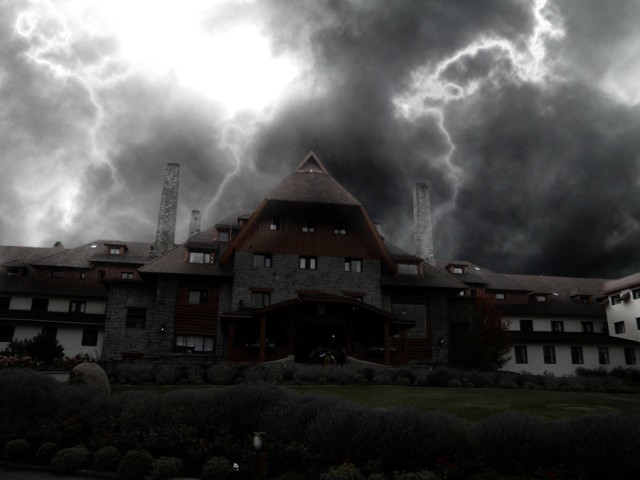
The shambling, ghostly shell of a company that shares its name with the classic game maker Atari went to the US Patent and Trademark Office (USPTO) this week to defend its exclusive rights to video games with Haunted House in the title.
The oral hearing at the USPTO yesterday came about when Atari opposed a proposed trademark for Haunted House Tycoon, an upcoming game that small developer Hazy Dreams of Infinity tried to trademark back in 2011. In its opposition notice, Atari suggested that its 1982 game Haunted House had become "well-known among the public and the trade" due to "widespread and extensive use."
Atari does have some valid current interest in its right to the 35-year-old game name. Haunted House is on iOS as part of the Atari's Greatest Hits collection, and the game became available through Microsoft's Game Room service starting in 2010. Atari also rebooted the franchise in 2010 with a remake of the same name, which it still sells as a Windows download.
But Atari's legal interest in defending the Haunted House name is quite recent. The company didn't even file a trademark for the game until 2010 (when the remake was released). In the intervening years, a handful of games with the Haunted House name had been released without legal issue, including a 2004 fan-remake of the Atari VCS original.
While Atari's Haunted House is probably the best-known game with the title, it's not the first game to bear the name. That honor likely belongs to 1972's Haunted House on the Magnavox Odyssey (a TRS-80 Haunted House from 1980 also predates Atari's release). And before video games even existed, of course, the haunted house was a well-known general concept that players could easily recognize apart from any specific, trademarked video game idea.
“Atari has a horrible reputation for attacking independent game developers, including recently going after TxK developer Jeff Minter,” Hazy Dreams of Infinity President Andrew Greenberg said in a statement given to VentureBeat. “It does not appear that anyone from the Nolan Bushnell or Ray Kassar glory days of Atari are still leading the company. It is tragic how the current leadership has driven its brand into the ground. They would be much better served by actually trying to make a good game rather than bullying independent developers.” The corporate entity now known as Atari has gone through so many sales, bankruptcies, and restructurings in its over three decades of existence that the current owners are primarily the caretakers of legal rights to a set of classic properties they had nothing to do with. The corporate Atari brand emerged from its latest bankruptcy through a purchase by French venture capitalist Frederic Chesnais, who was eager to "reposition the brand" from its troubled past. Since then, the 10-person company has lent the Atari name to social gambling startups and an LGBT-themed social game.Atari's case is just the latest in a long line of contentious trademark disputes in the gaming industry, including King Games' retracted, controversial attempt to trademark the word "Candy," Bethesda and Mojang's settled battle over the term "Scrolls," and Ubisoft and EA's recent fight over the trademark for "Ghost."
reader comments
82